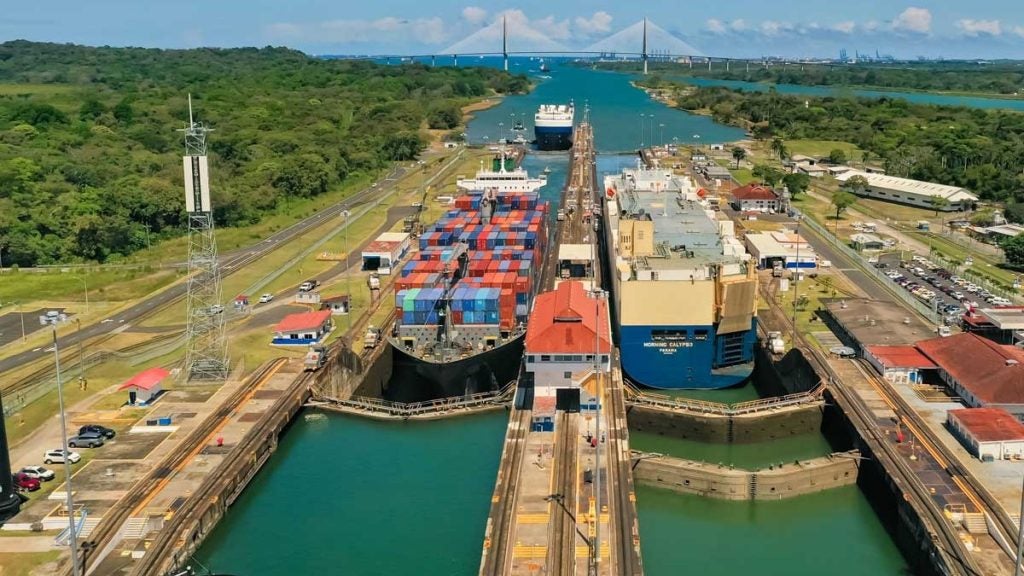Transport job hirings in Panama have declined in the second half of 2023 compared to the same period in 2022 as the crucial Panama Canal continued to operate at reduced capacity due to the worst drought in 73 years.
There were 349 active transport hirings in Panama in H2 2023, according to research by GlobalData, a 29% decrease from the 489 hirings in H2 2022.
On Friday (15 December), the Panama Canal Authority (PCA) announced it would be increasing its daily transit slots to 24 per day from January next year. The current capacity is 22 ships per day, down from the Panama Canal’s typical capacity of 36 transit slots.
The unexpected increase could be the start of a reversal in fortunes for the PCA and associated businesses.
The PCA had previously advised that transit slots would be reduced to just 18 from February next year, but higher-than-expected rainfall in November saw the Panama Canal’s water levels – and therefore operating capacity – rise.
Global shipping disruption
The PCA has announced various restrictions in daily traffic over the past six months.
As a key connector of trade between the Pacific and Atlantic Oceans, the Panama Canal has seen its working capacity oscillate wildly due to the El Niño weather phenomenon.
The turmoil has led shipping companies to pay record fees for expedited passage through the Panama Canal.
The Panama Canal’s shortages are being felt particularly hard amid the threat to shipping activity in the Red Sea and Suez Canal route from Yemen’s Houthi militants.
The Iran-backed Houthis have targeted ships “from any nationality” in the Red Sea through hijackings, drones and ballistic missiles. The rebel group has declared war on Israel in response to the ongoing assault on Palestine.
At least five major shipping firms and their clients have now paused transit through the Suez Canal and Red Sea due to the Houthis’ militant activities.
With roughly 5% of global trade passing through the Panama Canal – and 12% through the Suez Canal – the reduced capacity of both crucial passages is expected to leave a serious dent in imports and exports from Central America to the Middle East.
Our signals coverage is powered by GlobalData’s Thematic Engine, which tags millions of data items across six alternative datasets — patents, jobs, deals, company filings, social media mentions and news — to themes, sectors and companies. These signals enhance our predictive capabilities, helping us to identify the most disruptive threats across each of the sectors we cover and the companies best placed to succeed.









